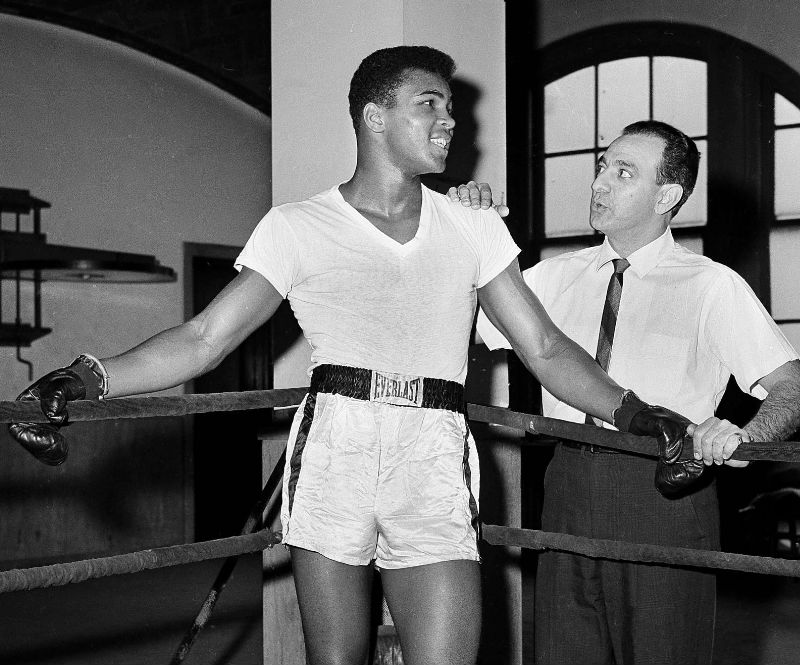
In this Feb. 8, 1962, file photo, young heavyweight fighter Cassius Clay, who later changed his name to Muhammad Ali, is seen with his trainer Angelo Dundee at City Parks Gym in New York. AP Photo/Dan Grossi, File
The United States is drawing on the memory of heavyweight legend Muhammad Ali to power them to Rio Olympics boxing gold, team fighters said on Wednesday.
“The greatest”, who died two months ago aged 74 after a long battle with Parkinson’s disease, announced his name to the world at the 1960 Rome Olympics when he won gold as a little-known 18 year old.
There may be no heavyweight in the Team USA ranks in Rio, but its eight fighters — six men and two women — say they will have Ali very much on their minds when the Olympic boxing gets under way on Saturday.
“Muhammad Ali paved the way for me and the rest of the team,” said Charles Conwell, a teenage middleweight.
“He coming straight out of high school and into the Olympics, and me doing the same thing, it’s a real big inspiration and motivation for me to go and win a gold medal and fight even harder.”
Claressa Shields, reigning middleweight Olympic champion who is fancied to repeat the feat in Rio, said she had met another American boxing legend, the recently retired Floyd Mayweather, on the day Ali died.
“On the day he died I felt like a huge part of me had left,” said Shields.
“I remember when I met Muhammad Ali, I felt this sense of pride. He was the first African American who stood up and said, ‘I’m black and I’m pretty and I can fight.'”
“He gave you that belief that you are beautiful and you are pretty,” added Shields.
“He was one of the most dangerous fighters in the game.
“I hope I can do justice to him when I speak about him and when I fight. Nobody else will ever be ‘the greatest’, ever, but I can try and be close.”
Boxing dirty
The United States is the most successful country in Olympic boxing history.
But they have not won gold in the men’s competition since Andre Ward in 2004 and face fresh challenges in Rio with professionals now allowed to compete and no more headguards in the male fights.
There will also be a new points-scoring system using judges — all designed to bring Olympic boxing closer into line with the professional fight game.
The AIBA, the world governing body for amateur boxing, ditched the unseemly headwear because, it said, there was ample evidence that there were fewer concussions without them.
Opponents say it will result in more cuts and American light flyweight Nico Hernandez said he was braced for opponents to deploy roughhouse tactics to cut an opponent.
“Being previously cut in the past, I’ve worked on some things like (defending against) headbutts and keeping myself out of trouble from that,” said Hernandez.
“Taking the headguards off does risk us getting cut. Boxing is not a clean sport so people could do that (headbutt).”
Gary Russell, a light welterweight, said he was relishing a scrap.
“You will have some fighters who will intentionally try to headbutt you,” he said.
“But knowing me personally and this is a gladiator-type full-impact sport, it doesn’t make a difference.
“The same concept — it is still someone trying to knock your head off, point-blank.”/rga